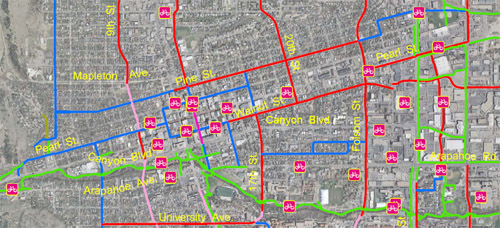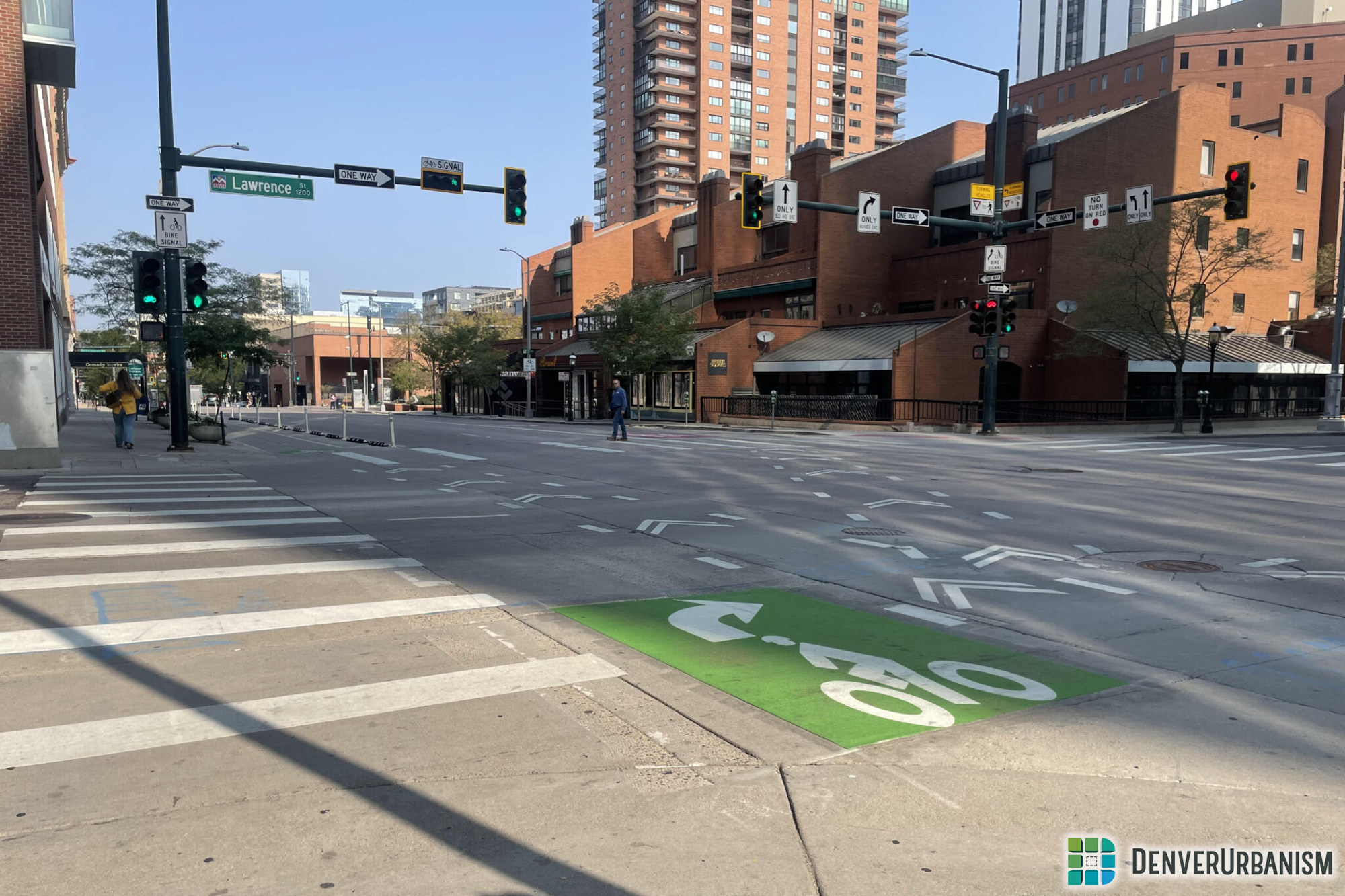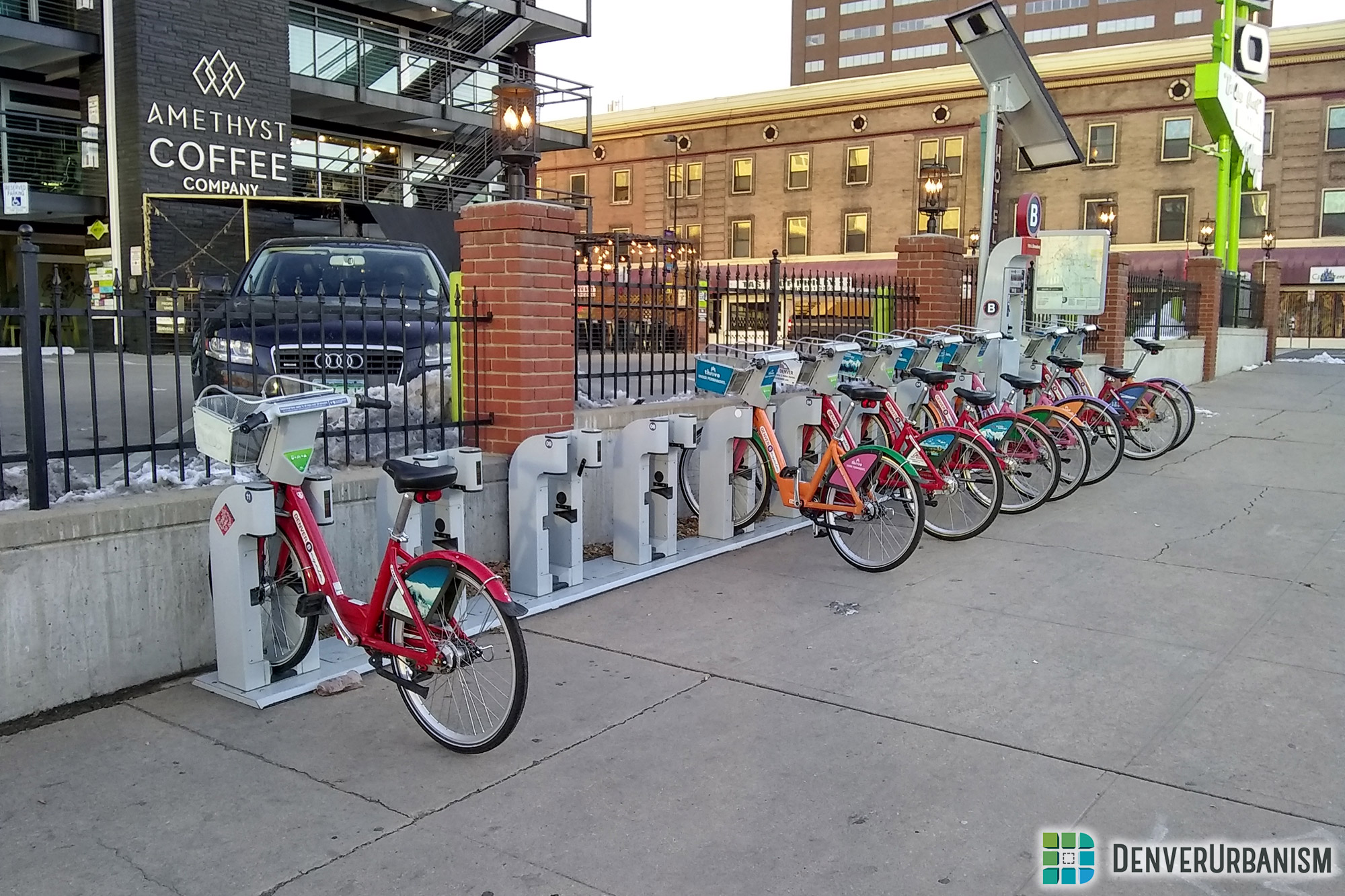This spring Boulder will join Denver in the ranks of American cities with bikesharing. A report presented to the Boulder City Council affords us a sneak peak of what Boulder’s system will look like. Here are some tidbits:
- Boulder will operate with the same B-Cycle system that Denver uses, including similar bikes, stations, and pricing.
- Boulder B-Cycle will cross-honor Denver B-Cycle memberships.
- The system will launch in April or May of 2011.
- It will initially include approximately 25 stations and 200 bikes, with provisions for future expansion.
- The initial roll-out will focus on placing stations in downtown Boulder and around the 28th Street retail corridor. No stations are planned for CU or University Hill, at least at first.
The City Council report also included this handy map of proposed station locations. Locations aren’t set in stone and could be modified, but it’s nice to get a sense of where this new transit system will go:
Proposed Boulder bikeshare station locations. Download the report and scroll to page 125 for the full-size version.











First of all – it is awesome that they are cross-honoring memberships. It is only the first step, but it would be great if my B-Cycle card would allow me on bikes in Minneapolis, D.C., or other future bike shares. I know they have different operators, and I think Minneapolis uses some sort of key fob, so that will likely never happen… but it could work in cities that use the B-Cycle system. I was pretty disappointed when my B-Cycle card wouldn’t unlock a bike for me in Chicago this past summer. Maybe different levels of membership, such as a “Global Pass” could be implemented by B-Cycle.
As for the placement, I question leaving CU out of the picture. I went to school there, and I see the downsides (drunk college kids), but there is enormous amount of student density on campus, many of whom are accustomed to using alternatives means of transit. The current setup is nice if you drive down to Pearl and then want to bike share around the commercial areas, but with Boulder’s low density, it seems Bike Share won’t really take any cars off the road, as there are not enough people living close to these stations.
It’ll be interesting to see how it works.
You’re not taking into account that each B-Cycle system is independently owned and operated. When you pay for a membership in Denver, you’re paying for maintainence, staff and bikes here in Denver, not in Chicago. I’d be interested in finding out how that will play out when people from Boulder use the Denver system and vice-versa – who gets paid (if at all) and how?
Aside from that, I’m (pleasantly) surprised to hear that the Boulder system will honor the Denver cards.
I imagine that they left CU and the hill out for now not just because of the “drunk college kid factor”, but because a lot of students already have their own bikes. I’m sure the stations will move into these locations next once the community has become more familiar with the system. In all, I think its a great start.
B-cycle is a predatory, corporate scam, not “bike-sharing”! B-cycle’s “leader”, Parry Burnap recently admitted that many users failed to realize B-cycle charges punitive, escalating rental rates in addition to its membership fee. The facts are that this program, which cost $70,000 per month to operate last year, charges about the cost of a cheap, new bicycle ($65) for a yearly membership, and for nine hours use of a B-cycle. The scam depends for its substantial operating expenses on taking advantage of people’s ignorance.
We could do so much better. Set up a truely cooperative program of bike-sharing with donated and rehabilitated used bikes. Use small amounts of public funds to train and hire vocational students as bike mechanics and redistributors. Retain the kiosks, but replace a credit card with a Denver Public Library card. Let users keep bikes for more than half an hour for free, then charge only a modest rate. Such a system would compete with low-end bike rentals from shops — so what? We could go a long way towards getting people to use transportation alternative to cars with a real program of bike-sharing (we also need to provide safer bike routes throughout the City) — the cost could be minimal and the payoff enormous.
If using bicycles instead of cars is a public good, we should consider spending some tax revenue to support cycling. B-cycle costs the taxpayers nothing other than the privilege of occupying and advertising in the public right-of-way, but it also offers nothing to people unable or unwilling to pay its fee(s), and it is a very expensive program overall. We can spend less collectively and put more people on bikes, just by aspiring to do so.